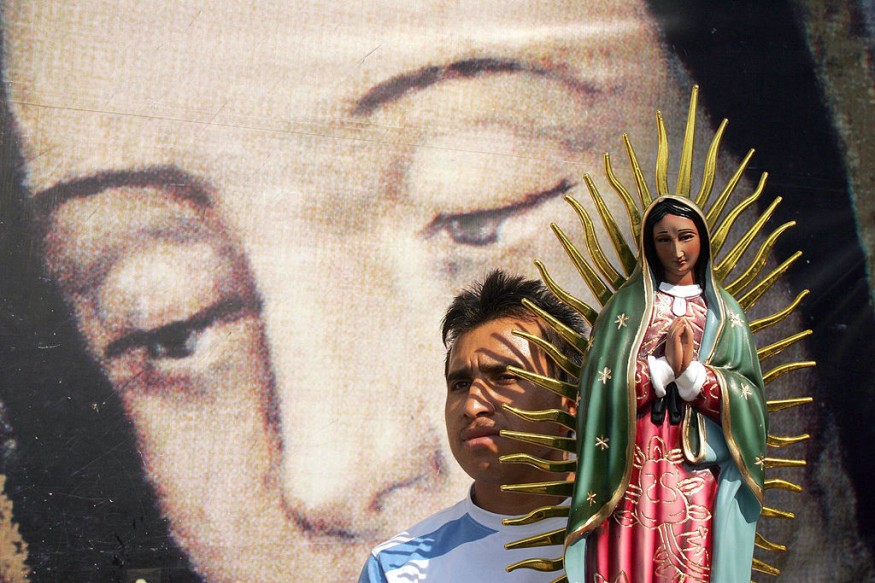Pilgrimage Bus Heading to a Mexico Religious Site Lost Its Brakes Killing 19, Injuring 32

A bus in Mexico carrying pilgrims lost its brakes and slammed into a building. The incident has killed 19 people and 32 more were injured. The bus was heading to a religious site in central Mexico, according to an NBC News report.
The assistant state interior secretary, Ricardo de la Cruz, said that the accidents happened in the township of Joquicingo. Six of the victims suffered severe injuries and were flown to a hospital in Toluca.
The bus was heading from the western state of Michoacan to Chalma, which is a town that has been visited by Roman Catholic pilgrims for centuries.
The victims that were flown to a hospital, included two minors. Others victims were transported to several hospitals in the region, according to officials.
The Ministry of Health noted that those injured included multiple women and children, with injuries ranging from broken bones to head trauma, according to an ABC News report.
Multiple agencies responded to the site of the crash, including the Red Cross and the Emergency Service of the State of Mexico.
Officials named the bus company as Turismo Tejeda and was bound for the Santuario del Senor de Chalma.
Most of the pilgrims often walk or bike on narrow roads or travel in aging buses, making accidents not uncommon.
Many Mexicans go on religious visits on the day of the Virgin of Guadalupe, which is on December 12.
READ NEXT : 13 Bodies Hung From Bridges by Mexican Drug Cartels' Gunmen Amid Bloody Turf War in Mexico
Our Lady of Guadalupe Pilgrimage in Mexico
The pilgrimage is believed to be the largest Catholic pilgrimage in the Americans. The patron saint has become a symbol for Mexico, according to Britannica.
Worship of Our Lady of Guadalupe has been particularly popular among women, especially in Mexico. The devotion was spread throughout the world by the Jesuits and other religions since at least the early 18th century.
Aside from the religious background of Mexico, the Our Lady of Guadalupe played an important role in Mexican nationalism and identity.
Miguel Hidalgo y Costilla promoted her in 1810 as the patroness of the revolt he led against the Spanish, with the rebels' battle cry being "Long Live Our Lady of Guadalupe."
Chalma Pilgrimage Site
Its early history is enveloped in myth. However, it was reported that when Augustinian friars first visited the area in the mid-1530s, they earned that local Indians were making pilgrimages to a sacred cave with the name of Chalma, according to Sacred Sites.
Thousands of pilgrims visit Chalma each year to bathe in the sacred spring and make offerings at the sanctuary.
The largest number of pilgrims arrives in Chalma for Ash Wednesday services and has become the second most visited pilgrimage site in Mexico.
Chalma has also been known to be a symbol of folk Catholicism, with elements of indigenous and European faiths, according to an Encyclopedia article.
Augustinian friars went to replace the idol with a cross, which they already reportedly found the image broken in pieces and a crucify already in its place.
Modern pilgrimages are lively events celebrated by floral displays, songs, dances, and fireworks.
READ MORE : Jalisco Cartel Boss El Mencho's Wife, La Jefa, Arrested in Mexico on Money Laundering Charges
This article is owned by Latin Post.
Written by: Mary Webber
WATCH: A Pilgrimage to Mexico and The Shrine of Our Lady of Guadalupe - from GoCatholicTravel
Subscribe to Latin Post!
Sign up for our free newsletter for the Latest coverage!
















